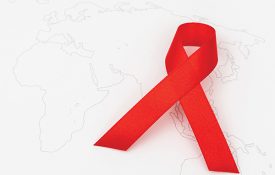-

Using Behavioral Science to Combat HIV in Mozambique
The US government is tapping into cost-effective, evidence-based interventions that can be scaled to combat the spread of HIV and other diseases across Africa and South Asia.
-
New Research From Psychological Science
Read about the latest research published in Psychological Science: Not So Innocent: Toddlers’ Inferences About Costs and Culpability Julian Jara-Ettinger, Joshua B. Tenenbaum, and Laura E. Schulz How do perceptions of competence and motivation influence children’s
-
Articulating Oral Health Behavior Change in HIV-Positive Adults with Health Behavior Theory
At baseline, we delivered Information-Motivation-Behavioral Skills (IBM) Model-informed oral health behavior change messages to HIV-infected adults with periodontal disease. At recall, subjects self-reported making specific behavior changes; more rigorous research is presently limited by the
-
Neuropsychological Correlates of Emotion Regulation in Women With HIV: An ERP Study
In case you missed it, Roger C. McIntosh presented his research at the APS 24th Annual Convention in Chicago, Illinois, USA. HIV-positive women are shown to demonstrate emotional deficit. The regulation of emotions is thought
-
More HIV Testing for Teens?
Yesterday was World AIDS Day, and according to the American Academy of Pediatrics (AAP), more can be done to prevent HIV in teenagers. In a policy statement, the AAP advocates for 16 to 18-year-old teens
-
HIV testing urged for teens
WXIA NBC: The American Academy of Pediatrics now recommends that all teens 16 to 18 years old receive regular, routine HIV tests if they live in an area where the prevalence of HIV is greater

